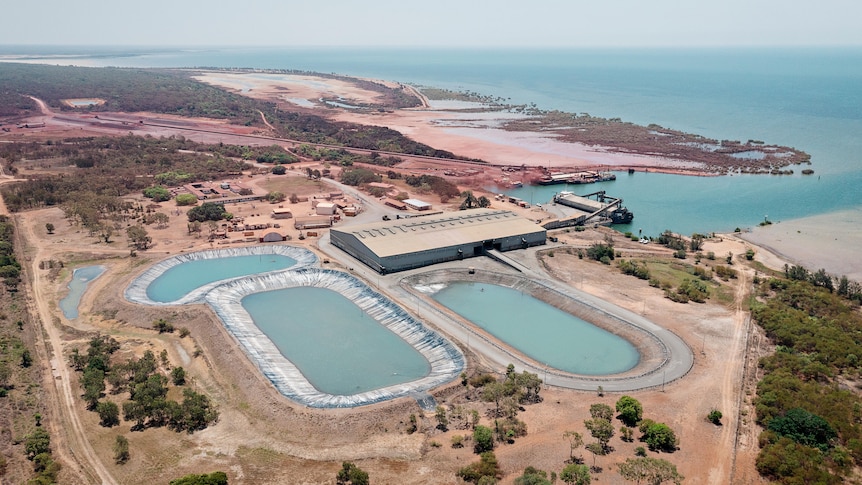Glencore McArthur River Mine Expansion Halted by High Court Ruling
A significant victory has been achieved by native title holders from the McArthur River region in the Northern Territory, as the High Court has ruled against mining giant Glencore’s plans to expand its port facilities on the Gulf of Carpentaria. The court case centered around Glencore’s desire to create additional space for dredge material near its zinc and lead mine. However, the native title holders successfully argued that this construction would infringe upon their native title rights.
The Background
The legal battle began in 2013 when Glencore, through its subsidiary Mount Isa Mines, applied for a mineral lease to establish a new dredge dumping area. This move was met with opposition from three native title holders: Mr. Friday, David Harvey, and Thomas Simon. These individuals, representing the concerns of the local community, raised issues related to the impact of the McArthur River Mine on their native title rights, potential damage to sacred sites, and the degradation of local ecosystems.
The McArthur River Mine, known for its vast zinc and lead deposits, has been a contentious issue between the mining company and traditional owners for some time. One of the main concerns has been the transportation of lead and zinc deposits, which have to be trucked approximately 120 kilometers to the Bing Bong port for global export.
High Court Ruling
The recent High Court ruling has ordered the Northern Territory government not to grant Glencore the lease required to construct a new area for storing dredge spoil. This decision is a significant setback for the mining company’s expansion plans and a major win for the native title holders.
The court’s decision highlights the importance of considering the rights and concerns of indigenous communities when it comes to large-scale mining projects. It sets a precedent for future cases where native title rights may be affected by industrial development.
Overall, the High Court ruling serves as a reminder that the protection of native title rights and the preservation of cultural heritage should be at the forefront of decision-making processes in the mining industry.
Glencore McArthur River Mine Expansion: High Court Rules in Favor of Native Title Holders
Road trains are responsible for transporting ore from the McArthur River Mine to the Bing Bong port, according to ABC News. However, to transfer the cargo onto larger export ships, barge vessels must navigate a shallow channel that requires regular dredging.
Mount Isa Mines, the owner of the land near the Bing Bong facility, had applied for additional space to store the dredge material. The current Dredge Spoil Emplacement Area had limited capacity and was filling up. However, the native title owners argued that granting the new lease would infringe upon their native title rights.
The High Court recently agreed with the native title owners, overturning a previous ruling by the Federal Court. As a result, the Northern Territory government has been ordered not to grant the lease. The native title holders, represented by lawyers from the Northern Land Council, had argued for their procedural rights under the native title act, which the Federal Court initially disagreed with. However, the High Court recognized the native title holders’ rights to notification and objection.
Joe Martin-Jard, the CEO of the Northern Land Council, expressed his satisfaction with the High Court’s decision. He called it a significant victory for the native title holders and emphasized the importance of McArthur River Mine respecting their rights. Martin-Jard also stated that the NLC is willing to engage positively with the mine and hopes for open communication and consent from the native title holders before any further plans are made.
The current dredge spoil area, which has been regularly filled with silts and mud from the channel over the past 15 years, has reached its capacity. Court documents highlight the necessity of a new dredge spoil area to continue the transportation of lead and zinc to the Bing Bong loading facility.
please visit our site 60time.com. Additionally, don’t forget to follow us on social media, such as Instagram (@60time.com) and Facebook (@60time.com).
Mark Furlotte, the general manager of Glencore’s McArthur River Mine, acknowledged and respected the High Court’s decision. He confirmed that discussions are ongoing between the mine, the traditional owners, and the Northern Land Council regarding the affected land and other related matters.
The potential halt of operations at McArthur River Mine due to the need for a new dredge dumping area raised concerns. However, NT Minister for Mining, Mark Monaghan, assured that Glencore would not be required to cease operations. The Territory government pledged to collaborate with Glencore and the native title holders to find the best solution for all parties involved.



